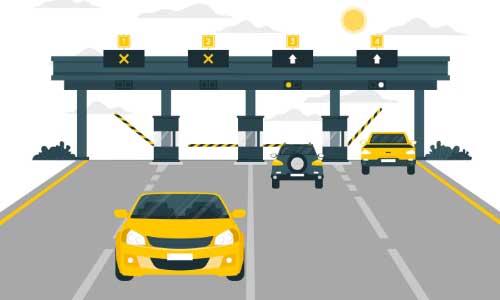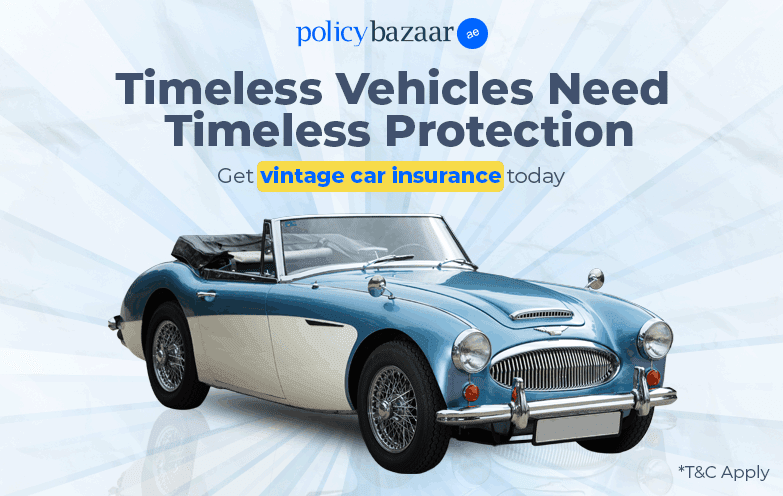Best Car Insurance in UAE
Some of the best and the cheapest car insurance quotes in Dubai are:
Buying a good insurance for your beloved car can be a bit tiring at times. Especially when you have too many options to explore, a whole range of car insurances to go through and just and overwhelming number of providers to compare. You’re likely to feel lost and confused times like these. A similar situation can arise when a to-be car owner hears about the gap and comprehensive car insurance. Quite similar from afar, these two types of car insurance plans can be hard to differentiate. Consequently, it’ll be harder to decide whether you will need one or the other for your car. Let’s differentiate these two types of car insurance plans and get our hands on the most suitable one.
Comprehensive Car Insurance Plans
A comprehensive car insurance plan insures your vehicle against all accidental damages and third-party liabilities. This includes damages caused in a road accident, collision, due to man-made disasters like riots or vandalism, natural disasters like storms and fire. This cover also provides insurance against total loss of the car due to unrepairable damages or when the car has been stolen. The third-party liability cover part of a comprehensive car insurance plan includes third-party vehicle damages, injuries incurred by third-party drivers and legal fees if any. All in all, comprehensive car insurance is an all-rounder insurance plan for your vehicle.
Comprehensive car insurance is not mandated in the UAE. Although it can ideally replace the mandatory third-party liability covers for all car vehicles since it offers that one benefit and several others. Given following is a complete list of inclusions of a comprehensive car insurance plan in the UAE:
- Third-party liability expenses including vehicle damage repairs, medical treatments and legal fees.
- Damages to own vehicle due to an accident or collision.
- Damages to own vehicle due to a natural disaster like storm or flood.
- Damages incurred due to man-made disasters like vandalism or riots.
- Total loss of the car due to theft
- Total loss of the car due to unrepairable damages
Apart from these basic benefits, comprehensive car insurance plans come with several add-on benefits as well. You can take these covers by paying a little extra premium. Some providers may even offer these benefits as basic benefits of the plan, depending on the level. Popular add-ons and supplementary covers for comprehensive car insurance plans include:
- Engine protection cover
- Off-road cover
- Personal accident cover
- Roadside assistance cover
- No depreciation cover
- Return to invoice cover
Gap Insurance is another one of these supplementary covers which come into effect when your car goes in total loss. Let’s understand the concept a bit more –
Gap Insurance
A gap insurance plan coverage for the gap that remains between the insurance pay-out of a totalled vehicle and the loan amount due for it with the bank. A car is categorised as totalled when it gets stolen, gets damaged beyond repairs or the repair expenses turn out to be more than its market value. When your car is totalled, the insurance company pays you a compensation sum that is equal to the market value of the car at that time. But it is entirely possible that the market value of the car will not be able to cover the remaining amount of the loan if you had your car financed. So, gap insurance covers this remaining gap between these two numbers so that you do not have to pay out of your pocket.
Let’s understand this with an example. Assume that you leased your car and took a loan for a tenure of 5 years. The total loan due with interest in the third year of the tenure is AED 50,000. Your car gets totalled this year after you bought it. Its market value after depreciation is AED 43000. The insurance company pays you AED 42000 after subtracting the deductible amount. Now you have a deficit of AED 8000 even after receiving the insurance amount.
If you have a gap insurance cover along with your comprehensive car insurance plan, this deficit of AED 8000 will be paid off by the insurance company. This way, you can cover the complete loan amount of your totalled car without spending additional money from your pocket.

Comprehensive vs Gap Insurance
Inherently, both these car insurances ensure the value of your car. The biggest difference in their basic structure is that one covers the market value of your car, and the other covers the lost value of the car. Where comprehensive car insurance will cover all damages related to your car and third-party, the gap insurance will only cover the loan deficit. Another difference between these two is that a comprehensive plan can be claimed several times while gap insurance expires as soon as you claim it once. Following is a comparison chart to understand these differences better:
Parameters |
Comprehensive Car Insurance |
Gap Insurance |
|---|---|---|
Type |
A basic car insurance plan |
A supplementary car insurance plan |
Coverage |
Covers the car as per the assured sum and the market value |
Covers the supplement after comprehensive and collision insurance pay-outs |
Claims |
Can be claimed several times |
Can be claimed only once |
Add-ons |
Can have add-ons |
Cannot have add-ons |
Who can take |
Any vehicle owner |
Vehicle owner with lease and registration on their name |
Qualifying vehicles |
All personal and commercial vehicles |
All except commercial vehicles |
When can it be taken |
Any time during the ownership of the vehicle |
Within 3-4 years of the purchase of the vehicle (may differ as per each provider) |
Who Should Take Gap Insurance?
Gap insurance should only be bought by car owners who leased their car for a long tenure – at least 5 years. The longer the tenure of your loan, the more interest you will pay. So, the interest increases with every passing year while the value of your car falls. This can end up making the loan amount way more than the market value of your car. So, if you think that the loan amount of your car is more than its market value, get the gap insurance.
You can easily drop the cover when the market value of the car is finally more than the remaining loan amount. It is wise to do so since you won’t need it anymore. Remember that gap insurance is a supplement cover and you will pay an extra premium for it apart from what you are paying for your comprehensive car insurance plan. So, evaluate all options and then make a decision.
Who Needs Gap Insurance?
You may need gap insurance if,
- Leased or financed your car.
- The finance tenure for your car is 60 months or more.
- You financed the car with little or no down payment at all. Typically, less than 20%.
- Your car is the type that depreciates quickly such as luxury cars, sports cars, SUVs, etc.
- Your car has a bad or a moderate kind of resale value.
- You plan to or already drive your car a lot, for example, using it as a mode of transport for work, etc.
- You have accumulated a rollover loan. If you buy a new car from the same dealership without paying off the loan for the previous one in full, dealers transfer it to the next car. This means you will have the loan of the new car as well as the remaining loan amount of the previous one on you. This is called a rollover loan and it can land you in a lot of trouble if you do not have gap insurance.
Gap insurance can also be combined with your car lease contract if your dealership offers this benefit. It is advised to avoid this situation and buy it separately. If the lease contract includes the gap insurance premium amount as well as the loan amount, you will end up paying interest more than you should. So, be wary of such situations.

Conclusion
Gap and comprehensive insurance may be two completely different kinds of covers but both of them works side-by-side. You can not even buy a gap insurance cover if you do not have a comprehensive car insurance plan already. Both gap insurance and comprehensive car insurance plans are quite useful, as long as you know your needs and requirements. Make sure that you research everything carefully before buying either of the two covers. Also, ensure that gap insurance that you take can be dropped off anytime. By combining these two ideally, you can pay off your car loan without a single worry.
More From Car Insurance
- Recent Articles
- Popular Articles
















